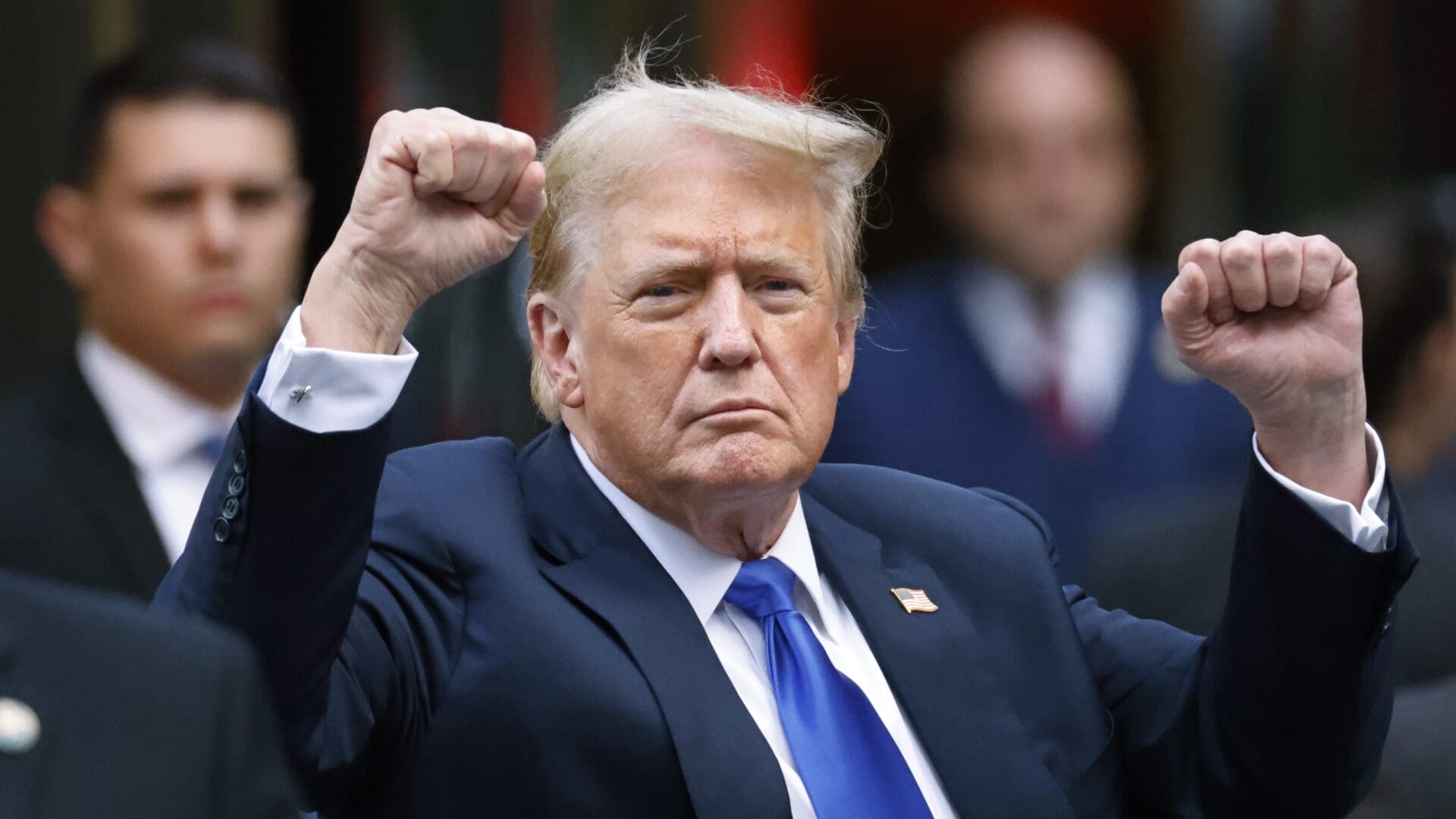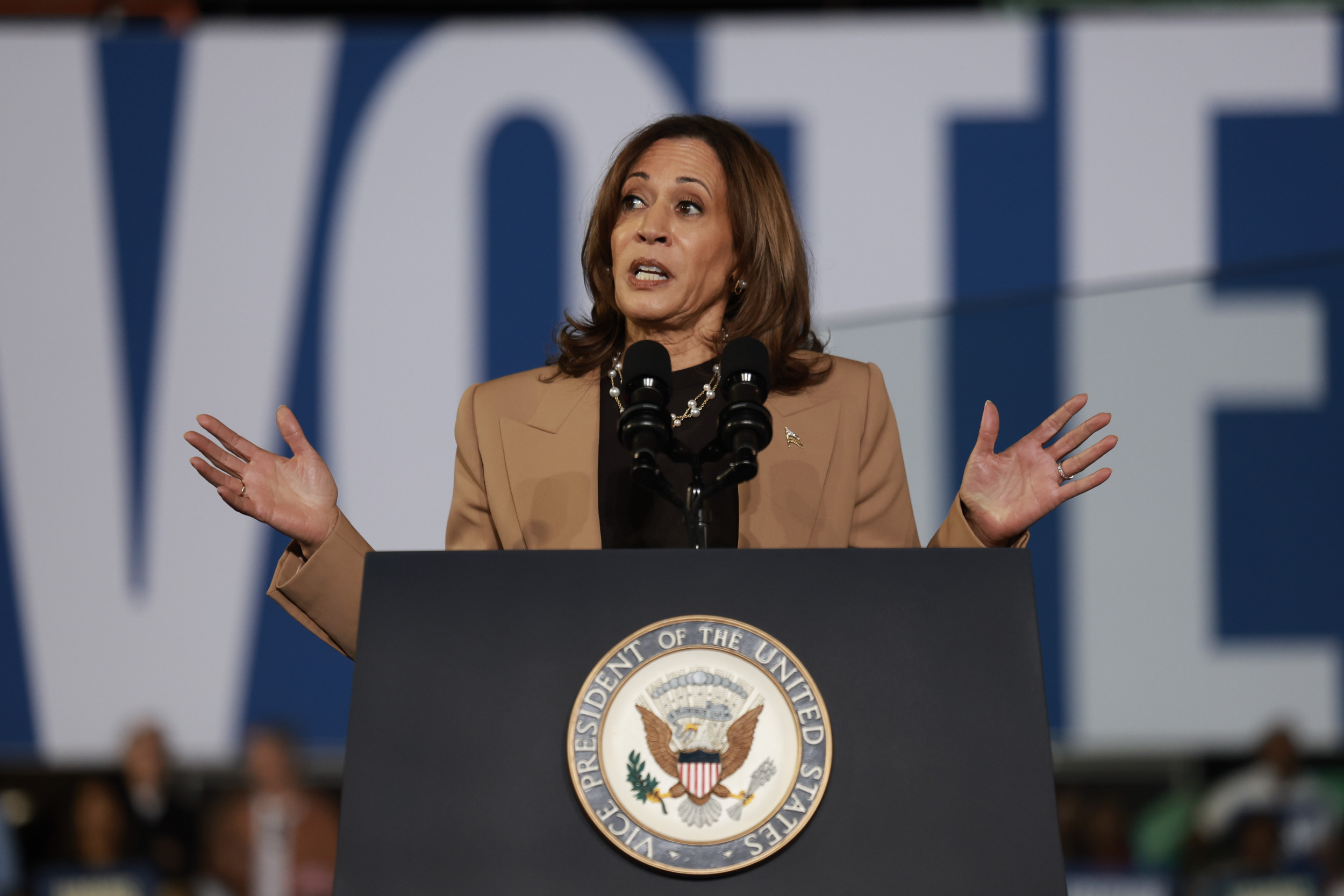Most Accurate Pollster: Who’s Nailing It In The World Of Predictions?
Let’s face it, polls are like the crystal balls of modern politics and public opinion—but not all of them hit the mark. If you’ve ever wondered who the most accurate pollster is, you’re not alone. In a world where predictions can shape decisions, understanding which pollsters consistently deliver reliable data matters. Whether it’s elections, consumer trends, or global issues, accuracy is king. So, buckle up, because we’re diving deep into the world of polling to uncover the truth.
Imagine this: you’re scrolling through your feed, and there it is—a flashy headline predicting the next big thing. But how often do those predictions actually come true? The answer lies in the hands of the most accurate pollster. These aren’t just random surveys; they’re scientific methods designed to gauge public sentiment with precision. As we navigate through endless streams of information, knowing which pollsters to trust becomes crucial.
Now, I get it—polls can be confusing. One says one thing, another says something completely different. That’s why we’re here. This article isn’t just about listing names; it’s about understanding the science, the process, and the people behind the numbers. By the end, you’ll have a clearer picture of who’s really nailing it in the world of polling. Ready to find out? Let’s go.
Who Are Pollsters Anyway?
Pollsters are the wizards of public opinion. They’re the ones crunching numbers, analyzing data, and making sense of the chaos that is human behavior. But not all pollsters are created equal. Some are more accurate than others, and figuring out why is key. Think of it like a recipe—if you miss even one ingredient, the whole dish falls apart. Same goes for polling. The right methodology, sample size, and even timing can make or break a poll’s accuracy.
What Makes a Pollster Accurate?
Accuracy in polling isn’t just a matter of luck. It’s a combination of factors that work together like a well-oiled machine. Here are a few things that set the best pollsters apart:
- Methodology: The way a poll is conducted matters. Is it an online survey, a phone call, or a mix of both? Each method has its pros and cons.
- Sample Size: Bigger isn’t always better. A well-represented sample size ensures that the results reflect the broader population.
- Demographics: Pollsters who account for age, gender, location, and other demographics tend to produce more accurate results.
- Transparency: The best pollsters are open about their methods. If a pollster won’t tell you how they got their data, it’s probably not worth trusting.
Top Contenders in the World of Polling
When it comes to the most accurate pollster, a few names consistently pop up. These aren’t just random organizations; they’re the cream of the crop. Let’s take a closer look at who’s making the grade.
1. Gallup
Gallup is like the granddad of polling. Established in 1935, it’s been around longer than most and has built a reputation for reliability. Their global reach and focus on public opinion make them a go-to source for many. But don’t let their age fool you—Gallup stays current by adapting to new technologies and methodologies.
2. Pew Research Center
Pew is all about the facts. Known for their non-partisan approach, they provide data-driven insights on a wide range of topics. From politics to social issues, Pew’s research is often cited by media outlets and policymakers alike. Their commitment to accuracy and transparency sets them apart.
3. YouGov
YouGov has made a name for itself by embracing online polling. With a vast panel of respondents, they’re able to deliver quick and accurate results. Their use of advanced analytics and machine learning gives them an edge in predicting trends.
Why Accuracy Matters
In a world driven by data, accuracy is everything. Whether you’re a business trying to understand consumer behavior or a voter trying to make an informed decision, reliable polls matter. Think of it this way: if a doctor gave you the wrong diagnosis, you’d be in trouble. Same goes for polls. If they’re off, the decisions based on them could have serious consequences.
The Impact of Inaccurate Polls
Inaccurate polls can lead to misinformation, confusion, and even chaos. Remember Brexit? Or the 2016 U.S. Presidential Election? Both were marred by unexpected results that left many scratching their heads. While polls aren’t perfect, they play a crucial role in shaping public discourse. That’s why choosing the most accurate pollster is so important.
How to Spot a Reliable Pollster
Not all pollsters are created equal, but there are a few signs to look for when determining reliability:
- Track Record: Has the pollster been accurate in the past? A strong history of success is a good indicator.
- Transparency: Do they share their methodology and data sources? If not, it’s a red flag.
- Reputation: What do experts and other organizations say about them? A good reputation usually means they’re doing something right.
The Science Behind Polling
Polling isn’t just about asking questions—it’s a scientific process. From designing surveys to analyzing results, every step requires precision. Here’s a breakdown of how it works:
Designing the Survey
The first step in any poll is designing the survey. This involves crafting questions that are clear, unbiased, and relevant. It’s not as simple as it sounds. A poorly worded question can skew results, leading to inaccurate conclusions.
Collecting Data
Once the survey is ready, it’s time to collect data. This can be done through various methods, including phone calls, online surveys, and even in-person interviews. The key is ensuring a diverse and representative sample.
Analyzing Results
Finally, the data is analyzed to draw conclusions. This involves statistical analysis and sometimes even machine learning to identify patterns and trends. It’s a complex process that requires expertise and attention to detail.
Challenges Facing Pollsters
Despite their best efforts, pollsters face numerous challenges. From declining response rates to the rise of social media, the landscape is constantly changing. Here are a few of the biggest hurdles:
- Changing Demographics: As populations evolve, so do their behaviors and preferences. Keeping up with these changes is a constant challenge.
- Technological Advances: While technology has made polling faster and more efficient, it’s also introduced new complexities. Online surveys, for example, can reach a wider audience but may not always be representative.
- Public Skepticism: With so much misinformation out there, it’s no wonder people are skeptical of polls. Restoring trust is an ongoing battle for pollsters.
Case Studies: When Polls Got It Right (and Wrong)
To truly understand the importance of accuracy, let’s look at a few case studies. These examples highlight both the successes and failures of polling.
The 2008 U.S. Presidential Election
2008 was a landmark year for polling. Many pollsters accurately predicted Barack Obama’s victory, proving that with the right methodology, polls can be incredibly precise. This election solidified the reputation of several prominent pollsters, including Gallup and Pew.
The 2016 U.S. Presidential Election
Fast forward to 2016, and the story was very different. Many polls failed to predict Donald Trump’s victory, leading to widespread criticism of the industry. While some pollsters, like YouGov, got it right, the overall failure highlighted the need for improved methods.
The Future of Polling
As technology continues to evolve, so too will polling. Advances in AI and machine learning are already transforming the way data is collected and analyzed. But with these advancements come new challenges. Ensuring accuracy in an increasingly digital world will require innovation and adaptability.
Emerging Trends in Polling
Here are a few trends shaping the future of polling:
- AI and Machine Learning: These technologies are being used to analyze vast amounts of data quickly and accurately.
- Mobile Polling: With more people using smartphones, mobile polling is becoming increasingly popular.
- Social Media Analysis: Platforms like Twitter and Facebook are providing new insights into public sentiment.
Conclusion
So, who’s the most accurate pollster? The answer isn’t as simple as naming one organization. It’s about understanding the science, the process, and the people behind the numbers. Whether it’s Gallup, Pew, or YouGov, the best pollsters share a commitment to accuracy and transparency.
As we’ve seen, polling plays a crucial role in shaping public discourse. From elections to consumer trends, reliable data matters. So, the next time you come across a poll, take a moment to consider the source. Is it trustworthy? Is it transparent? These questions can help you make informed decisions.
Now, it’s your turn. Got a favorite pollster? Or maybe you have a story about a poll that got it right (or wrong)? Share your thoughts in the comments below. And if you found this article helpful, don’t forget to share it with your friends. Together, we can make sense of the world of polling—one poll at a time.
Table of Contents
- Most Accurate Pollster: Who’s Nailing It in the World of Predictions?
- Who Are Pollsters Anyway?
- What Makes a Pollster Accurate?
- Top Contenders in the World of Polling
- Why Accuracy Matters
- How to Spot a Reliable Pollster
- The Science Behind Polling
- Challenges Facing Pollsters
- Case Studies: When Polls Got It Right (and Wrong)
- The Future of Polling

Most Accurate US Pollster Has Donald Trump Winning the Election

Kari Lake Gets Bad News From America's Most Accurate Pollster

Kamala Harris and Donald Trump Deadlocked With ‘Most Accurate Pollster